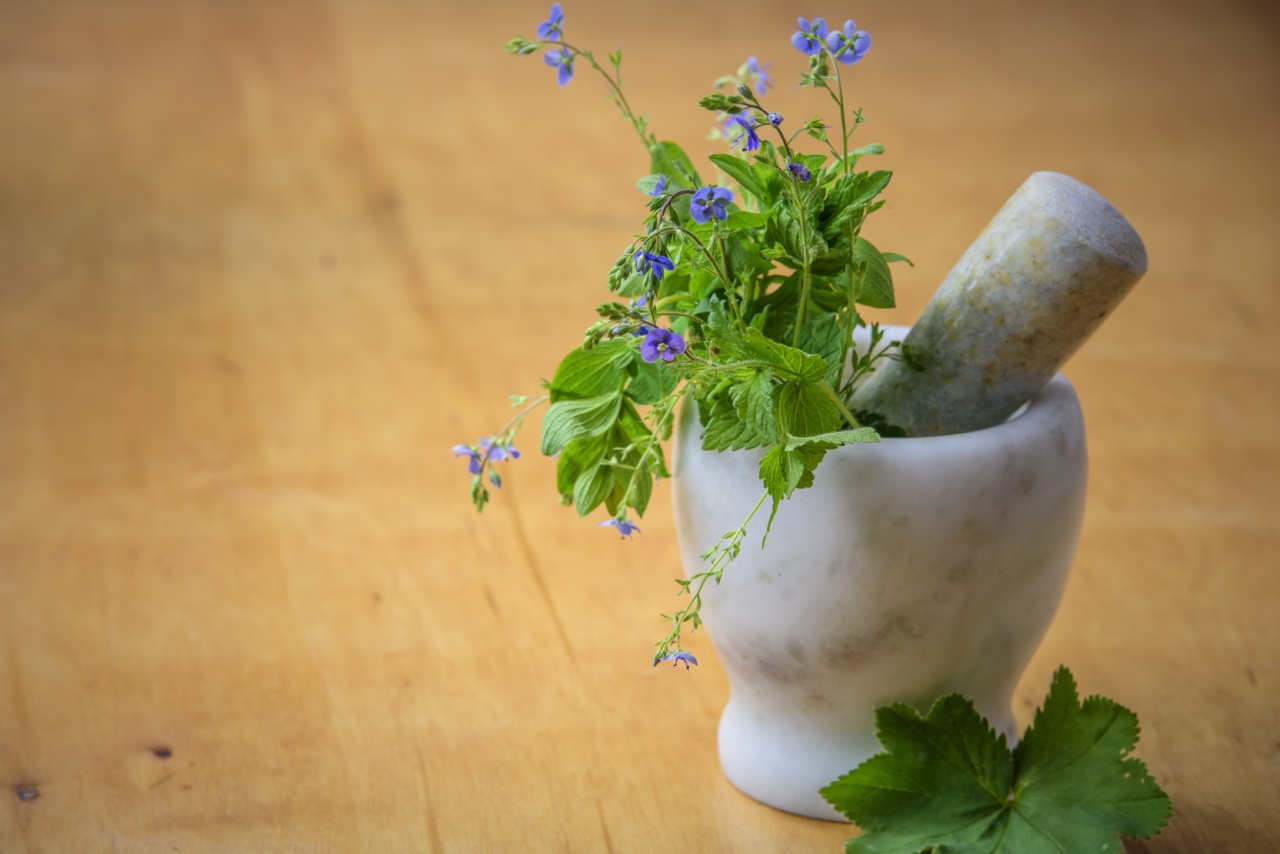Asthma is a respiratory disease that affects millions worldwide. The chronic inflammation of the airways, which leads to coughing, wheezing, and difficulty breathing, can be caused by various factors such as allergies, pollution, and genetics.
While there are conventional treatments available, they often come with side effects such as weight gain, mood swings, and weakened immune system.
For those seeking a more natural approach to managing their asthma symptoms, herbs may offer a safer, gentler alternative. Here are some potent herbs that have been shown to help alleviate asthma:.
Ginger
Ginger is a well-known natural remedy for various illnesses, including asthma. It has anti-inflammatory properties that help reduce airway inflammation, making it easier to breathe.
It also contains compounds that relax the muscles in the airways, improving airflow to the lungs. You can add fresh ginger to your smoothies or tea, or take it in supplement form.
Turmeric
Turmeric is a common spice in many Indian dishes, and it’s also a potent anti-inflammatory herb. Its active ingredient, curcumin, has been shown to improve respiratory function in people with asthma.
It can help reduce inflammation in the airways and improve lung capacity, making it easier to breathe. You can add turmeric to your meals or take it in supplement form.
Garlic
Garlic has been used for centuries as a natural remedy for various health conditions, including respiratory problems. It has antimicrobial properties that can help prevent respiratory infections, which can trigger asthma symptoms.
It also contains compounds that can help reduce inflammation and improve lung function. You can add fresh garlic to your meals or take it in supplement form.
Licorice Root
Licorice root has been used in traditional Chinese medicine for centuries to treat respiratory ailments. It contains natural steroids that can help reduce inflammation in the airways, making it easier to breathe.
It also has expectorant properties that help clear mucus from the lungs. You can take licorice root in supplement form or drink licorice tea.
Nettle
Nettle is a natural antihistamine that can help relieve allergy-induced asthma symptoms. It contains compounds that block the production of histamine, which is responsible for triggering allergic reactions.
It also has anti-inflammatory properties that help reduce airway inflammation. You can drink nettle tea or take it in supplement form.
Mullein
Mullein is a gentle herb that can help soothe the airways and improve breathing. It has expectorant properties that help clear mucus from the lungs, making it easier to breathe.
It also has anti-inflammatory properties that can help reduce airway inflammation. You can drink mullein tea or take it in supplement form.
Eucalyptus
Eucalyptus is a powerful decongestant that can help relieve asthma symptoms. It contains compounds that can help dilate the airways, improving airflow to the lungs. It also has expectorant properties that help clear mucus from the lungs.
You can inhale eucalyptus essential oil or use it in a diffuser.
Ginkgo Biloba
Ginkgo biloba is a natural bronchodilator that can help improve respiratory function in people with asthma. It contains compounds that can help relax the muscles in the airways, improving airflow to the lungs.
It also has antioxidant properties that can help reduce oxidative stress in the lungs. You can take ginkgo biloba in supplement form.
Boswellia
Boswellia, also known as frankincense, is a natural anti-inflammatory herb that can help reduce airway inflammation in people with asthma. Its active ingredient, boswellic acid, has been shown to improve respiratory function and reduce asthma symptoms.
You can take boswellia in supplement form.
Fenugreek
Fenugreek is a natural expectorant that can help clear mucus from the lungs, making it easier to breathe. It also has anti-inflammatory properties that help reduce airway inflammation. You can take fenugreek in supplement form or drink fenugreek tea.
While herbs can offer natural relief for asthma symptoms, it’s important to consult with a healthcare professional before adding them to your treatment plan. Some herbs may interact with medications or cause allergic reactions.
It’s also important to note that herbs are not a substitute for conventional treatments and should be used as a complementary therapy.






























